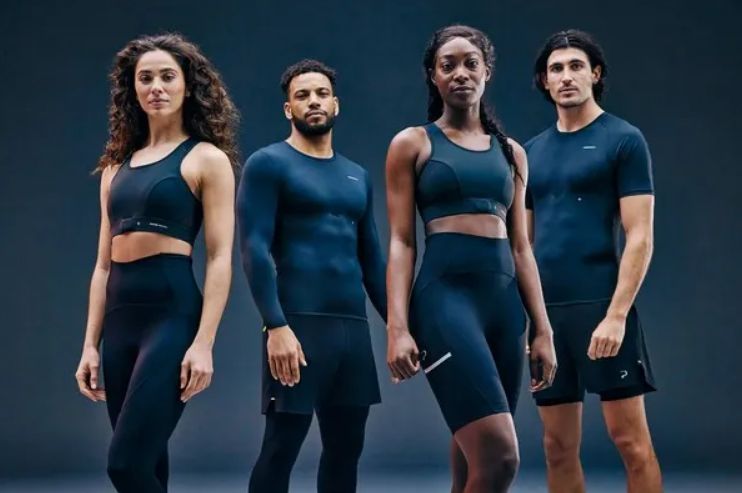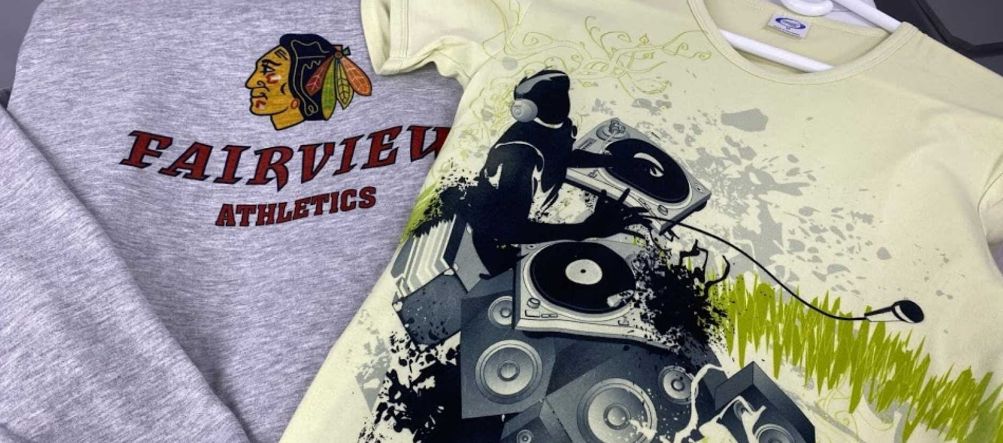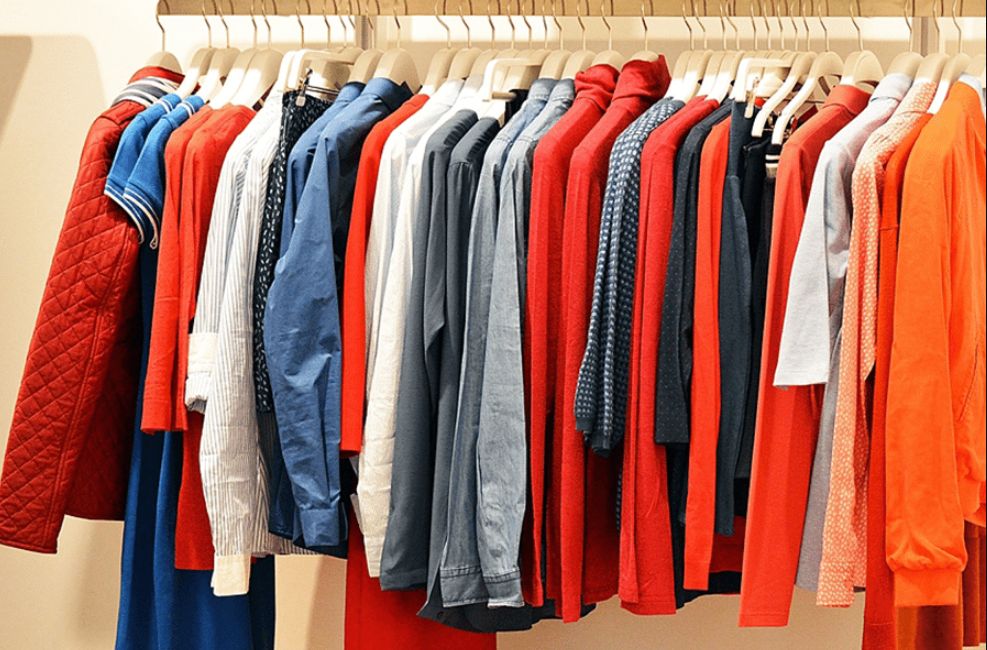In this fabric and thread, we delve into the art of active wear manufacture. Custom designs, a canvas for creativity, await. Our goal: to illuminate the path for collaboration with skilled artisans in active wear.
Threads of knowledge will be spun, revealing how unique visions transform into tangible wearables. Let's embark on this sartorial journey together, unraveling the intricacies of active wears creation.

In active wear manufacture, the triumph lies in fabric selection; Polyester and Nylon lead the charge. These materials, with their hydrophobic qualities, repel sweat outward. Keeping the athlete's skin dry and comfort paramounts.
Innovative weaving techniques enhance this effect, creating channels for moisture escape. Dri-FIT™ and COOLMAX® exemplify industry standards in moisture management. Active wear's success hinges on such fabrics, ensuring endurance and performance.
Elasticity is king in the active wear. Spandex, interwoven with cotton or polyester, offers unparalleled flexibility. This blend is known as Lycra® or Elastane, gifts garments with form-fitting adaptability.
Athletes demand freedom of movement, and these fabrics deliver. Advanced knitting techniques, like 4-way stretch, optimize the range of motion. Such blends ensure active wear conforms to every bend and leap.
Temperature control is vital in active wear's design. Merino wool and thermal polyester fibers lead this field. They trap body heat, yet allow perspiration to dissipate. In cold environments, these fabrics are indispensable.
Conversely, for warmer climates, fabrics like CoolTouch™ offer breathability. Active wear thus becomes a shield, adapting to the athlete's thermal needs.
Athletes battling the sun's harsh rays find solace in UV protective fabrics. Materials like microfiber polyester offer UPF (Ultraviolet Protection Factor) ratings. UPF 50+ fabrics block over 98% of UV radiation. This protection is integral in outdoor sports apparel.
Fabrics are treated with UV absorbers, deflecting harmful rays. Active wear thus becomes a guardian against the sun’s potential harm.
Hygiene is paramount in active wear's fabric choice. Antimicrobial treatments on fabrics like SilverTech™ inhibit bacterial growth. This technology ensures odor control and longevity of the garment.
Athletes engage in intense activities; these treatments keep the wearables fresh. Such innovation is crucial in maintaining active wear's integrity over time.
In active wear, ergonomic cuts are vital. They enhance motion freedom, crucial for athletes. These cuts, tailored through CAD (Computer-Aided Design), follow the body's natural lines. They reduce fabric bulk, maximizing comfort.
Advanced cutting techniques, like laser cutting, ensure precision. Materials like Lycra® and spandex are often used, promoting flexibility.
Compression zones in active wear, strategically located, improve muscle support and blood flow. Techniques like body mapping determine these zones' placement. They typically target areas like calves, thighs, and torso.
Fabrics with high elastane content are preferred for their elasticity. This design feature aids in reducing muscle fatigue, a key benefit for endurance sports.
Flatlock seams are a cornerstone in active wear. These seams are flat, preventing skin irritation during intense activity. They're stronger than traditional seams, offering durability.
Utilizing specialized sewing machines, flatlock seams merge fabric edges seamlessly. This technique not only adds comfort but also enhances garment strength.
Reflective accents in active wear manufacture are not just decorative; they're functional. They increase visibility in low-light conditions, a safety must.
Using materials like Scotchlite™ by 3M, these accents are integrated into garments. They're often found on running apparel and cycling gear. This feature is a fusion of safety and style.
Breathable panels in active wear are essential for thermal regulation. These panels, often made of mesh, allow air circulation. They're strategically placed in sweat-prone areas like underarms.
This design aids in moisture wicking, keeping the wearer dry. Breathable panels contribute to overall comfort, crucial in sports apparel.

In active wear’s realm, brands must identify distinct needs, like thermoregulation, ergonomic cuts, and moisture-wicking properties. For garments facing nature's rigors, select fabrics combining durability and flexibility. Reflect on features like UV resistance and anti-odor technology. Secure zippers, reflective trims, and reinforced seams elevate utility.
Opt for dynamic color palettes, mirroring your brand's ethos. Prioritize sustainability; consider materials like recycled PET or organic cotton. Mesh inserts, ventilation zones, and compression elements cater to specific athletic needs. Understand your demographic's preferences for fit and form. Always iterate designs, incorporating user feedback for continual refinement.
Utilize CAD for precision in design, allowing intricate tailoring to body movement. Focus on anatomical mapping for optimal fit. Employ 3D modeling for realistic previews, reducing prototype iterations.
CAD facilitates seamless transitions from concept to production-ready designs. Integrate layering techniques and panel placements digitally. Ensure seam placements enhance comfort and durability.
Select GSM (grams per square meter) based on intended activity. Higher GSM offers durability for outdoor wear; lower GSM suits indoor, high-intensity workouts. Balance weight and breathability. Consider GSM variations for different garment sections.
Seasonal adaptations necessitate GSM adjustments. Test GSM for stretch, recovery, and performance under stress.
Choose stitching types for durability and flexibility. Flatlock seams reduce chafing; over lock stitches offer stretch. Utilize reinforced stitches in high-tension areas. Experiment with decorative stitching for brand differentiation.
Employ bartacks for added strength in critical points. Ensure stitching choices align with fabric properties and garment functionality.
Prioritize color fastness to prevent fading and bleeding. Test under various conditions – UV exposure, perspiration, washing. Opt for high-grade dyes compatible with fabric type. Consider pre-treatment processes to enhance color retention.
Regularly inspect batches for consistency. Balance vibrancy with longevity in color selection.
Implement rigorous performance testing: abrasion resistance, moisture management, and stretch-recovery. Simulate real-world conditions in testing protocols. Collaborate with athletes for practical feedback. Record and analyze data for each test parameter.
Continuously evolve testing methods to align with emerging athletic trends and technologies. Certification from recognized testing bodies adds credibility.

In the active wear, scale matters. Seek factories with robust output capabilities, quantified in units per annum (UPA). Balance quality with quantity; high UPA shouldn't sacrifice fabric integrity. Analyze previous outputs; track records of 500K+ units signal efficiency.
Diversified machinery portfolios enable varied product lines. Capacity thresholds dictate market reach, crucial for burgeoning brands.
ISO standards are key, ensuring quality and consistency. Look for Oeko-Tex® certification, guaranteeing eco-friendly textiles. BSCI (Business Social Compliance Initiative) adherence speaks volumes about ethical practices.
WRAP (Worldwide Responsible Accredited Production) certification indicates top-tier labor conditions. Certifications are not mere alphabets; they're quality assurances. They safeguard your brand's reputation, essential in a competitive industry.
MOQs vary, often in the 500-1000 unit range. Low MOQs benefit startups; scalability is vital. High MOQs hint at optimized production costs, beneficial for mass production.
Negotiate MOQs; flexible manufacturers often accommodate. MOQs shape inventory strategies; align them with your distribution plans. MOQ decisions impact financial planning; choose wisely to avoid overstocking.
Lead times, typically 30-90 days, are crucial in planning launches. Shorter lead times enable rapid market response, a competitive edge. Longer lead times necessitate advanced planning, impacting marketing strategies.
Evaluate lead time consistency; unpredictability can derail campaigns. Optimal lead times balance manufacturing thoroughness with market demands.
Customization reflects brand uniqueness. Seek manufacturers adept in bespoke designs. Flexibility in fabric choices and design alterations is pivotal. Assess their portfolio for previous custom projects. Customization prowess attracts niche markets, setting your brand apart.
Customization capacity should align with your creative vision, not constrain it.
Navigating the world of active wear manufacturing, a labyrinth of fabric, and thread, requires finesse. Communication is the loom; trust, the thread binding partnerships in this industry.
Active Wear Inc., for example, demands precise specifications: GSM (Grams per Square Meter), fabric blend ratios, and stitch counts. The Regular visits to their factories, hearing the rhythmic hum of sewing machines, enhance mutual understanding. In meetings, discuss CAD (Computer-Aided Design) specifics, not just deadlines.
Observe their QC (Quality Control) protocols; details matter in the weave of active wear. Adapt your language; speak in terms of textile tension, not just profits. Your manufacturer's expertise is a tapestry; appreciate its complexity. Remember, in this industry, relationships are as intricate as the patterns on your fabric.

In a bustling atelier, CAD software breathes life into active wear designs. Fabric swatches, myriad in hues, cascade across designers' desks. Prototypes emerge, amalgams of Lycra, polyester, and ambition.
Testing them, athletes don flexi-fibered garments, gauging comfort and durability. Iterations follow, refining each seam, a meticulous odyssey towards perfection.
Roaring machines slice through rolls of moisture-wicking fabric. Precision reigns in the cut-and-sew assembly line. RFID tags attach, tracking each garment's journey. A symphony of stitching, hemming, and embroidering unfolds. Colors merge, patterns align, creating active wear en masse.
QC experts scrutinize each piece, armed with magnifying glasses and standards manuals. Tensile strength tests, colorfastness checks, seam integrity assessments ensue.
Data floods in: pass/fail ratios, defect categories, improvement notes. Active wear withstands rigorous trials, a testament to its resilience.
Biodegradable plastics and recycled paper whisper sustainability. Custom boxes, sleek, branded, cradle the active wear. Barcodes gleam, ready for scanning.
Packaging mirrors the product: innovative, functional, and aesthetically pleasing. Each item, a treasure encased, awaits its unveiling. The final touch before the journey begins.
Logistics teams strategize, plotting routes across digital maps. Warehouses buzz, forklifts dance in orchestrated chaos. Container loads fill, sealed with promises of timely delivery.
GPS trackers activate a digital breadcrumb trail. Trucks roll out, ships set sail, and planes ascend. Active wear traverses continents; its journey to consumers begins.
|
Aspect |
Prototype Development |
Bulk Fabrication |
Quality Control |
Packaging Options |
Shipping Logistics |
|
Main Focus |
Concept Validation |
Mass Production Efficiency |
Product Consistency |
Protection & Presentation |
Timeliness & Distribution |
|
Tools Used |
CAD Software, 3D Printers |
CNC Machines, Assembly Lines |
Spectrometers, Tensile Testers |
Auto-Packaging Systems |
GPS Tracking, Freight Software |
|
Key Parameters |
Design Accuracy, Functionality |
Output Rate (Units/hr), Tolerance |
Pass/Fail Ratio, Defect Rate |
Material Durability, Size |
Transit Time, Route Optimization |
|
Challenges |
Feasibility, Cost Estimation |
Scale-Up, Resource Allocation |
Standard Compliance, Inspection |
Eco-friendliness, Branding |
Customs, Weather Delays |
|
Typical Timeframe |
Weeks to Months |
Months to Years |
Continuous (Post-Production) |
Days to Weeks |
Hours to Weeks |
|
Outcome Metrics |
Proof of Concept Success Rate |
Production Volume, Efficiency |
Quality Index, Return Rate |
Damage Rate, Customer Satisfaction |
On-Time Delivery Rate, Cost |
|
Regulatory Aspects |
IP Rights, Prototype Safety |
Labor Laws, Environmental Standards |
ISO Standards, Safety Regulations |
Packaging Regulations |
Import/Export Laws, Carrier Compliance |
A Table On What Is The Production Process! From Concept to Reality!
Rapid adjustments are the key in SCM's labyrinthine landscape. Navigate through shipping quagmires with JIT (Just-In-Time) strategies. Patience wanes as containers languish at ports.
Diversify suppliers; don't put all threads in one basket. Air freight, albeit costly, circumvents oceanic snarls. Delays test resilience, forging stronger logistic frameworks.
The quest for the right fabric intertwines with sustainability's demands. Synthetic blends, offering durability, reign in athletic realms.
Natural fibers breathe, yet their procurement often ensnares. Explore global markets; fabric diversity enriches. Balancing quality with eco-footprints requires a deft touch. Fabric choice shapes the garment's soul and story.
Precision in tech packs mitigates manufacturing mishaps. CAD systems streamline design, yet human oversight remains crucial. Iterative adjustments have a dance with dimensions and cuts.
Communicate changes succinctly, avoiding ambiguities. Prototyping illuminates flaws, guiding refinement. Each alteration has a step closer to perfection. Tech packs are blueprints; handle with care.
Costs spiral without meticulous oversight. Negotiate fiercely with fabric mills; every dollar counts. BOM (Bill of Materials) scrutinization reveals hidden savings. Efficiency in production slashes expenses, not quality. Bulk purchasing lowers per-unit costs, but risks stockpiles.
Prudent budgeting balances quality, sustainability, and profitability. Fiscal discipline weaves through every business thread.
Compliance is a tightrope walk over regulatory abysses. ISO standards benchmark quality, yet flexibility is necessary. Labor laws and ethical sourcing are non-negotiable. Audits, daunting yet essential, ensure adherence. Environmental regulations shape processes and materials.
Compliance isn't a hurdle; it's a cornerstone of integrity. Ethical practices yield trust, the fabric of business relations.
Feedback, a vital cog in the active wear manufacture machine. Users' voices, akin to sonic waves, resonate through our fabric choices. Diverse thoughts, like an intricate tapestry, weave a pattern of consumer satisfaction. Nylon's resilience praised Lycra's flexibility, lauded.
Through terse but potent remarks, clients shape our future cuts. Satisfaction metrics, though unnumbered, echo loud in our decision matrix.
Each SKU is a story of triumph or learning. Q1's leggings: a hit, eclipsing 15K units. Contrast with Q2's tank tops, where sales dipped. Inventory turns, a dance of numbers and anticipation.
SKU 4532's velocity is to a beacon of consumer preference. Insights gleaned guide our next product blueprint. In the numbers' narrative, a roadmap emerges, clear as a high-resolution display.
Market murmurs transform into trends. Social media buzz, our unspoken barometer. Hashtag #ActivFlex, trending for weeks, signaled a market shift. Competitors' moves, meticulously monitored, reveal a landscape of adaptation. Yarn technologies evolve; we adapt with alacrity.
In the ebb and flow of consumer sentiment, our brand finds its cadence. Amidst these market waves, our strategy, a sturdy vessel, sails forward.
Reorder the silent applause from retailers. SKU 987's 30% reorder rate, a testament to its popularity. Fabric durability is a recurring theme in reorder discussions.
Seasonal variants, more than mere calendar markers, dictate our production cycles. In the rhythm of reorders, a pattern of preference emerges. Our supply chain, fine-tuned to this pulsating demand, remains agile and responsive.
Every stitch has a step towards perfection. User feedback, integrated into our CAD systems, refines our patterns. Ergonomic seams, a focus for our upcoming line.
Breathability and moisture-wicking, not mere buzzwords but design imperatives. In the crucible of refinement, new prototypes emerge, ready for trial. Our design lab, a fusion of art and science, constantly evolves the active wear narrative.
Collaboration with active wear manufacture unlocks bespoke, vibrant designs. SansanSports.com excels in this arena, weaving innovation and style seamlessly. Forge a unique athletic identity: choose custom designs, select SansanSports.
This journey in active wear manufacture, rich in details and options, awaits your creative vision. Embrace this opportunity; let SansanSports be your ally in fashioning athletic excellence. Visit SANSANSPORTS where your design dreams become tangible.
